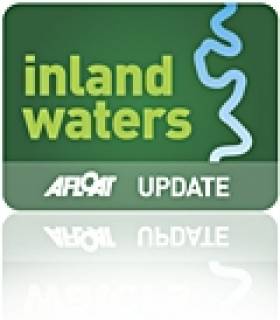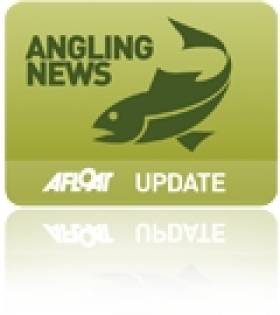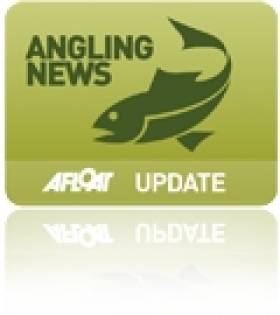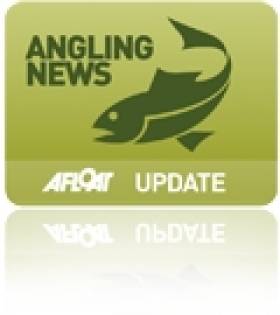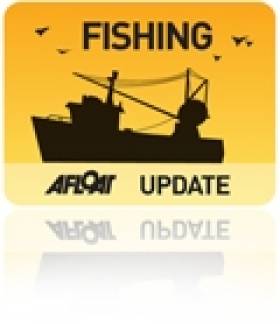Displaying items by tag: IFI
#INLAND WATERWAYS - Inland Fisheries Ireland (IFI) has announced the results of studies on the genetic makeup of brown trout stocks in the Suir and Boyne river catchments.
These studies form part of a wider scheme looking at Ireland's larger riverine catchments - assisted by the Office of Public Works, geneticists from UCD and trout anglers across Ireland - and involve a chemical analysis of scale samples from fish known as 'micro-satellite DNA analysis'.
The results from the Suir and Boyne are described by IFI as "quite amazing" and "of significant value" to managing the fisheries in these areas.
In both catchments, the first step saw trout stock samples of young fish examined genetically, and they were shown to be discrete - in other words, fish from any given tributary were found to be genetically different to those from others.
The next step involved samples of adult fish from the main river, contributed by anglers, which were then related to the different tributary genetic types.
Summary results from the Suir and Boyne show that there are respectively seven and five distinct families of trout in the catchment area; that most fish born in tributaries migrate to the main stem till adulthood before returning to their tributaries to spawn; that numbers migrating from individual tributaries are variable, but fish don't cross into adjacent catchment areas; and that there movement of young trout along the river system is "extraordinary", with fish often migrating from near the source to the mouth.
More details on findings for the Suir catchment and Boyne catchment are available on the IFI website.
Anglers Win Support of IFI Board Over Shrimp Bait Ban
#ANGLING - Enniscorthy anglers have secured the support of the board of Inland Fisheries Ireland in their call to lift the ban on using shrimp as bait.
As the Enniscorthy Guardian reports, members of the Enniscorthy Local Anglers group argue that shrimp is ideal bait for catching salmon downstream, and are "baffled" by the ban on its use by IFI officials.
In a letter to the IFI they wrote: "'We see this ban as putting a direct stop to salmon fishing for 99% of our towns' salmon anglers as this is the only safe method of fishing that suits the stretch of river available to the people of Enniscorthy."
MInister of State Fergus O'Dowd is set to decide on the matter shortly, and anglers hope he will find in their favour in time for the opening of the River Slaney on St Patrick's Day.
The Enniscorthy Guardian has more on the story HERE.
Man Escapes Jail for Illegal Fishing, Obstructing Officer
#ANGLING - A man narrowly escaped prison for obstructing a fisheries officer in a case taken by Inland Fisheries Ireland (IFI) at Carrickmacross District Court earlier this month.
Piotr Flaga - of Bog Road in Drogheda - was fined €450 by Judge Sean McBride after he was found to have set lines at a lake in Carrickmacross on 18 and 19 August last with the intention of taking coarse fish illegally.
The court heard that when apprehended by Assistant Inspector Ronan O’Brien, Flaga refused to co-operate and would not give his name and address. He then obstructed Asst Insp O’Brien by moving his vehicle towards him in a bid to escape when questioned.
Gardai were called to the scene and subsequently Flaga was issued with two summons.
Flaga entered a guilty plea and was convicted under Sections 301 and 308 of the 1959 Fisheries Act. He was further charged for breach of byelaw 595 of 1977 in relation to fishing in fresh water for coarse fish by means other than rod and line.
The defendant was fined a total of €450 with five months to pay with 14 days imprisonment in default. Some €500 in costs were also awarded to Inland Fisheries Ireland.
Judge MacBride acknowledged Flaga's public apology to Asst Insp O'Brien, but emphasised that any person who came before him in future for a similar offence would face imprisonment.
IFI Launches 2012 Sponsorship Programme
#ANGLING - Inland Fisheries Ireland (IFI) has announced the launch of its 2012 Sponsorship Programme.
The IFI Sponsorship Programme aims to increase awareness of IFI and its work, recreational angling, the sustainable commercial use of the inland fisheries resource and habitat issues.
Applications are invited from organisers and event promoters that will support the aims of the IFI sponsorship programme.
Events would be supported on the basis of: the location and nature of the event; the potential of the event to introduce new users to angling in an active capacity (ie not just as spectators); and to educate and inform stakeholders of angling, environmental, commercial salmon fisheries and habitat issues.
"The sustainable use of our wonderful inland fisheries and sea angling resources must be promoted," said Minister for Communications, Energy and Natural Resources, Pat Rabbitte, who launched the programme.
"People of all ages can enjoy angling in urban and rural settings, off charter boats and beaches and on quiet riversides.
"In addition, traditional commercial fisheries add value to small local communities, while biodiversity awareness ensures a sustainable resource for all."
Applications and details of the sponsorship programme are available online or from your local IFI office. The closing date for submissions is 27 January 2012.
Pest Control at Salmon Farms 'Insufficient'
Scientists have expressed disappointment after the publication of a report into strategies for improved pest control in Ireland's salmon farms.
According to The Irish Times, experts from Inland Fisheries Ireland (IFI) said the findings of the National Implementation Group were "insufficient to protect wild salmon and sea trout".
The report highlighted failures among a number of sites in the west of Ireland in controlling sea lice during the crucial spring period.
IFI says it is "a matter of priority" to review the location of salmon farms to ensure the protection of wild salmon and sea trout "while also meeting the needs of the commercial fish farm sector".



























